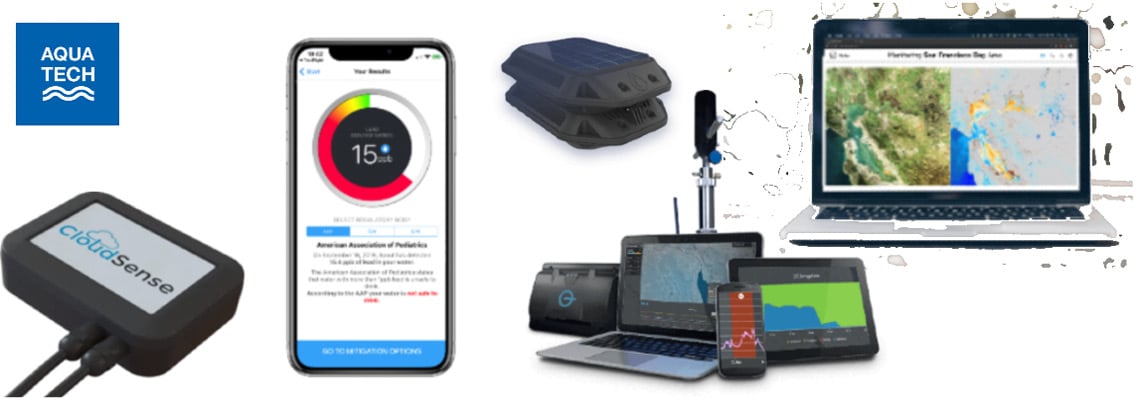Democratising data: 5 start-ups to watch in water quality monitoring
A proliferation of new applications
Water quality data is a vital measurement for water utilities, as well as their customers.
To date, the gold standard has been field samples that are taken and then subsequently analysed in a central laboratory.
However, as the robustness of sensor technology has increased, and the prices decreased, it has sparked a proliferation of new applications that monitor water quality in both the water catchment and water network.
Dr Benjamin Tam, managing director of Isle Utilities UK, believes democratised access to data could be a game-changer.
“In this new world, customers can measure the water quality themselves, without waiting for the utility to undertake a test.”
“New water quality sensors are also democratising access to the data,” he said. “In this new world, customers can measure the water quality themselves, without waiting for the utility to undertake a test.”
Speaking to Aquatech Online, he added: “This could be critical in some areas of the world where utilities are overstretched, or when water quality issues are fleeting and samples difficult for utilities to collect. There could be a shift in expectations by customers in the coming years that water utilities have to manage.” Tam said this is resulting in the next generation of water quality sensors for the water distribution network.
Real-time data is the future
In its Smart Water e-book 2019, industry association SWAN recommended that “Drinking water utilities should evaluate alternatives and design and implement an surveillance and response system (SRS) communications system”.
This includes multiple components to detect water quality anomalies that could “have public health and economic consequences”.
Meanwhile, a UK Water Industry Research (UKWIR) report on drinking water quality recommended the clear need to “understand how processes at different locations across the water cycle impact others, such as treatment impacts on water quality in pipe networks”.
Tam added: “Waiting for routine samples to be analysed or for customers to pick up a problem has never seemed right, as any failing sample investigation is always a minimum 24 hours behind. "Real-time data from sensors in the network is the future, and the technology has caught up. This is transforming water utility operations by giving them real-time data to proactively manage water treatment and protect water supplies.”
Aquatech Online looked at five examples of innovations in the water quality monitoring market, from the watershed, to the utility network and down to the household level. The following list is not based on any particular ranking or commercial influence, but a collection of developments that should be of interest to Aquatech Online readers.
Intellitect
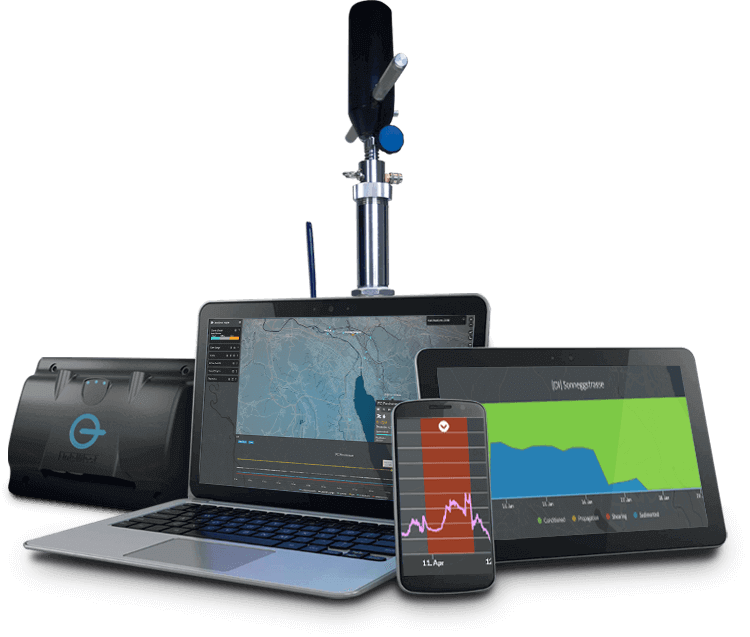
UK-based Intellitect has developed water quality hardware in the network, with the mantra “real-time monitoring, from source to tap”.
To date, the organisation has been working with utilities across Europe to develop a smart network monitoring system to “change the way distribution networks are managed and bringing digital transformation and intelligence to support better decision making”.
Targeting four areas including water quality, leakage, discolouration and hydraulics across water networks, the offering includes multi-parameter sensors designed for in-pipe monitoring of water distribution networks.
Clients include UK utilities, Anglian Water, Severn Trent, Northumbrian Water, as well as Germany water supplier, Berliner Wasserbetriebe, Vitens in the Netherlands and Marafiq in Saudi Arabia.
“Intellitect uses a high-end, robust and accurate sensor approach opting for a lower deployment, due to higher costs,” added Tam. “A data platform is then used to visualise and interpret the data, to infer water quality issues.”
Spout
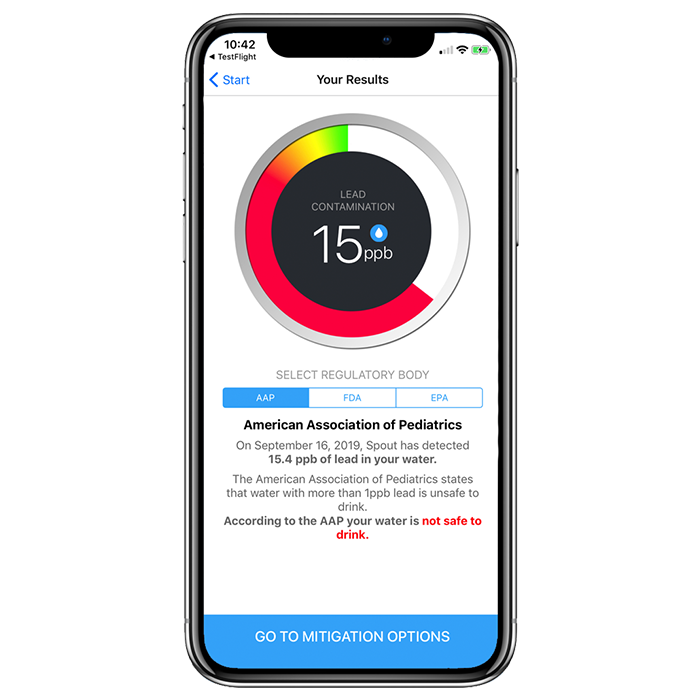
“People need to be protected from lead-contaminated water…”
"People need to be protected from lead-contaminated water and have the ability to protect themselves – that's my vision,” said Ari Kaufman, CEO of Spout.
“We are aiming to connect over 100 million opt-in US consumers with local mitigation solutions, linking communities together with notification and communications that promote action.”
The organisation is currently raising additional investment and has sponsored pilots with utilities such as Denver Water, a global in-home water delivery partner, Imagine H2O and ABInBev in Washington DC.
CloudSense
![]()
- Aqua-pulse – a multi-parameter sensor kit
- Aqua-cloud – cloud-based remote management platform
- Aqua-lytics – analytics and apps engine generating real-time heat maps.
New water quality sensors are helping to democratize access to data. We look at five innovations in the water quality monitoring market, from the watershed, to the utility network and down to the household level.
Watr
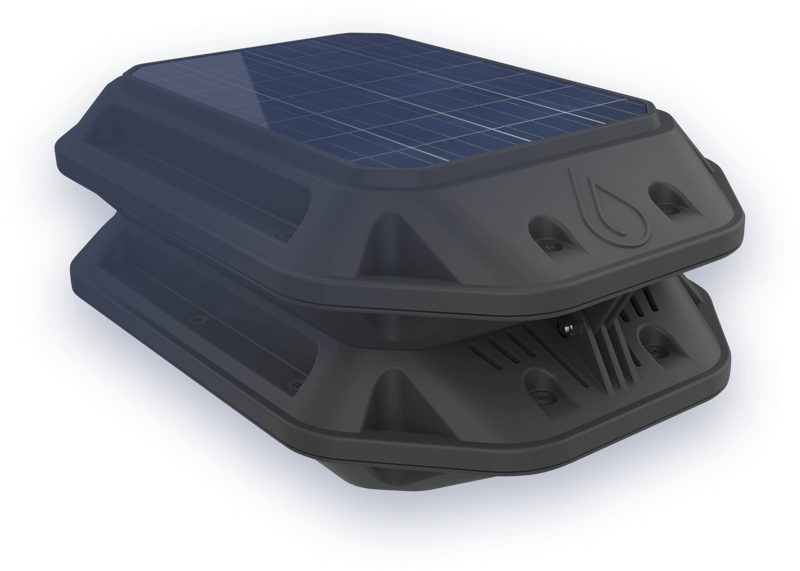
UK start-up, Watr provides a small, floating solar-powered monitor for lakes, rivers and reservoirs. Measurable parameters include ammonia, salinity, turbidity, total dissolved solids (TDS), nitrates and others.
The company claims that within two minutes of opening the box, a live data dashboard and notification alerts will be made available.
The Watr Monitor can be adjusted to suit the needs of the user with "probe versatility and the ability to take samples at different depths".
In terms of integration, the API can be integrated with existing infrastructure to enable changes to improve water quality immediately.
A reference installation at the Highbridge Lake Fishery in Norfolk enabled the site lake manager to continually monitor Dissolved Oxygen, pH, Conductivity, Temperature and Oxygen Reduction Potential.
In a recent article on UK water quality being impacted by combined sewer overflows, Dr David Lloyd Owen, managing director of Envisager credited Watr as an example of the type of low-cost technology that could support improved performance.
“Keeping out waters clean and healthy will never be cheap, but at least the money can be spent where it needs to be.”
He said: "Cost-effective monitoring takes the guesswork out of managing our waters. Keeping our waters clean and healthy will never be cheap, but at least the money can be spent where it needs to be."
Gybe
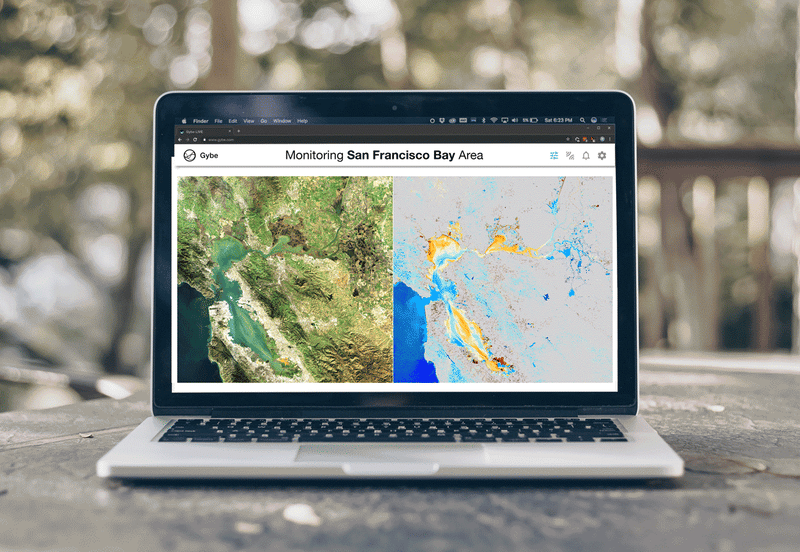
Combining both sensors and satellite data for a watershed overview of water quality, Gybe plays in the integrated hardware and software space.
The US start-up combines on-the-ground sensors installed above the water, together with remote sensing imagery to provide real-time data to inform water management decisions.
Since launching its pilot product a year ago, Gybe has fielded 10 systems across Oregon, Idaho, Mississippi, Louisiana, California and North Carolina.
Founder and CEO Ivan Lalović told Aquatech Online: "We are innovating on the basic technology in satellite earth observation that has existed for 30-40 years, called ocean colour measurements. This field has been critical to understanding nutrient and oxygen cycles in global oceans. Our technology overcomes some of the key remote sensing limitations that have prevented applications inland."
Gybe measures parameters under three categories, including:
- Biology – Chlorophyll-a concentration and cyanobacteria
- Geo-Physical Parameters – Turbidity and sediment concentration
- Chemicals + Nutrients – Coloured dissolved organic matter.
"We measure contaminants that have optical signatures, so for example distinguishing the type of phytoplankton,” added Lalović. “We can also do that for inorganics like sediments. We can figure out where the sediments are coming from and determine if they are soil erosion related because most soils have pigments associated with them." Gybe passed through the Techstars Sustainability Accelerator, in partnership with The Nature Conservancy. It was then one of AB InBev’s 100+ Sustainability Accelerator cohort in 2020, delivering an installation in June at the Palisades Reservoir in Idaho, US.
Related content
- Addressing the CSO challenge to water quality
- 6 companies harnessing satellites for water
- Explore all our coverage related to water treatment
Share your water technology stories with us
Do you have an innovation, research results or an other interesting topic you would like to share with the international water technology industry? The Aquatech website and social media channels are a great platform to showcase your stories!
Please contact our Sr Brand Marketing Manager Annelie Koomen.
Are you an Aquatech exhibitor?
Make sure you add your latest press releases to your Company Profile in the Exhibitor Portal for free exposure.
We promise never to send you spam and you can unsubscribe at any time!
